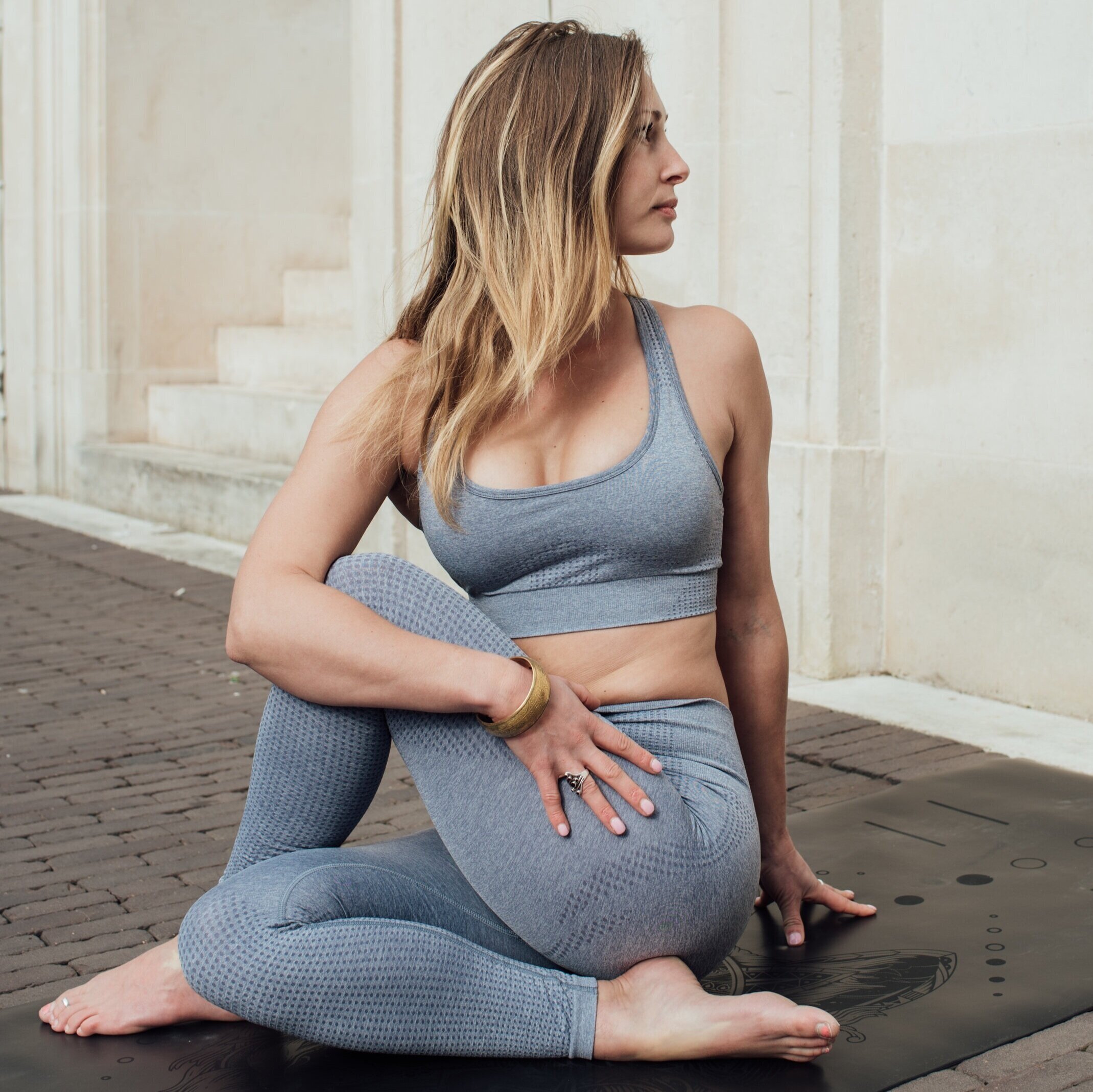Self-reflection - Looking In or Opting Out?
You’re busy, you have bills to pay, the dog needs another vets trip, Granny’s ill, you’ve got a baby on the way and your boss hates you. WHAT, is looking inward going to solve? And WHO, has time for that anyway?
This article is going to clear up some of the questions that may surround this concept.
During a recent yoga workshop whilst having a conversation with some students, we approached the subject of self-reflection and looking inward. The underlying theme surrounded the legitimacy of inner work when there are multiple external pressures and stressors which, certainly seem and understandably so, more pressing.
I want to show you why looking inward is important, and how it can specifically help when dealing with external pressures. In the modern world, there is no avoiding stressful or energy consuming scenarios, but there are different ways we can respond to them.
Inner work can be fundamental in providing a better framework to understand ourselves and deal with ups and downs more healthily. It allows us to ride the waves with deeper understanding of our triggers. It helps us navigate the wily terrain of the mind from untrained and untamed, to possessing the wisdom of the observer, bringing with it a sense of satisfaction, contentment and grace.
Looking inward is often perceived as a luxury, and I can see why. With the demands of society or lifestyle, it is certainly not something we learn from a young age to prioritise. But you know what? We should, because it allows us to take an element of our lives into our own hands.
We learn to understand ourselves from a deep and authentic place. We learn to self-soothe, self-heal and self-love. From this place, we are better equipped to deal with any challenges life throws our way. Because you know they will come.
The problem with not looking inward, is that it tends to mean we do a lot of looking outward. Constantly projecting our energy outward leaves us feeling depleted. Whether it’s our family and friends, our jobs, our responsibilities, the news channels or our social media accounts that we focus on, it is all too easy to give our power away without even necessarily realising it.
We receive information from the external world, without having a strong foundation in our internal world. This can render us open to fear, shame, comparison and dogma. There is so much information out there that it can be overwhelming to navigate our own truth through the noise.
Looking inward gives us the tools to do this and helps us step into our own power.
Forms of Looking Inward
Self Reflection
Self reflection is a form of self-study, where we consider different aspects of the self in a compassionate way and with an emphasis on bettering ourselves. For example, if we are riding a bike but keep falling off, it is extremely helpful to look at the way we are riding it, consider ways we can do it differently in order to stop hurting ourselves or others by constantly crashing, and to allow us to enjoy the journey. Self reflection can help us look at the way we think about things and contemplate our behaviours, our work, our lifestyle and actions.
It helps us establish, with kindness and understanding, if there are areas for improvement and implement these to enrichen our experience of life, our effectiveness and our impact. Self reflection can also improve our experience of self-identity and enhance meaningful decision making (Front Psychol. 2017).
Self reflection includes questions such as:
What are my strengths?
What are my weaknesses?
What skills do I have?
What are my achievements?
Where do problems arise in my life?
Introspection
Similarly, introspection is a helpful tool when engaging in self study. Introspection guides us to look at our emotional and cognitive processes; the way we might react to certain situations or trigger points; the way certain situations make us think or feel, and the behaviours that may occur in response to this.
Introspective questions can include questions such as:
How did that situation make me feel?
What made me react in that way?
Was that a constructive or destructive outcome?
Am I holding onto something I don’t need?
Could that situation have been handled differently?
Positive Psychology provide some benefits of self-reflection and introspection as part of the looking inward paradigm:
Less stress and anxiety
Higher confidence and self-esteem - understanding your purpose and potential
Understanding your core values - what’s important to you
Increased perspective - bigger picture thinking
Improved self-control and self-regulation
Increased creative achievement
Increased capacity for risk taking - facing your fears
Better decision making
Improved relationships and connectivity
Better sleep
The most important thing to remember when engaging in self study is to maintain self-compassion and an element of objectivity (Dr. K. Neff). No single human is perfect, we each have hurdles and obstacles to overcome that are part of the learning journey. This is what can make life so rewarding - there is nothing more satisfying than witnessing your own personal growth. For this reason, journaling is a very useful tool in the self-study toolkit.
Journaling
Journaling allows us to transfer the jumble of thoughts, ideas, contemplations and observations out of our heads and onto paper where we can see them as a tangible list. It allows us to compartmentalise and often reveals transformative links and themes in our lives. What’s more, keeping a journal enables us to look back on our journey of the self and see how far we have come; how much has been learned and implemented. This is both an empowering and humbling experience.
Meditation
Meditation is great tool for clearing the mind, whilst providing space to discover and explore your inner world. The Mayo Clinic provide a list of benefits of meditation that further reinforce the importance of mindfulness practices to help us look inward and increase our capacity to manage stressors:
Gaining a new perspective on stressful situations
Building skills to manage your stress
Increasing self-awareness
Focusing on the present
Reducing negative emotions
Increasing imagination and creativity
Increasing patience and tolerance
Yoga
Modern practices of yoga often encompass Patanjali’s Eight Limbs. These are a set of social and personal guidelines which we can follow to, ultimately, reach a state of union with universal consciousness, Samadhi. Patanjali is said to have compiled a digestible account of an extraordinarily large database of ancient texts, scriptures and teachings written by yoga philosophers and practitioners. A key element of this framework is Svadhyaya, study of the self. This term has an intricate meaning, but as an overview, it requires an inquisitive mind, a self-questioning perspective, introspection and a lifelong commitment to continual growth through direct and devoted learning.
Yoga teaches us to become more aware of our bodies, and the habits of our minds. It draws the attention from the external world, to an internal perspective, bringing clarity and sharpening the mind.
For me personally all these aspects combined have resulted in a much more intimate knowledge of myself. I started practicing yoga for strength, flexibility and fitness, however it evolved into so much more than that and is now an integral partner and instrument in my life.
The Research
Now to address the question of whether inner work is helpful among the demands of modern life. It is fair to say that most of us are not sages or holy (hu)men who can meditate in the mountains for days. There are myriad stressors, pressures and responsibilities that require our attention.
But that’s exactly the reason why self study can be SO powerful. It allows us to navigate these stressful situations with awareness, with understanding of ourselves and the way we might respond to certain situations. It allows us to recognise our triggers and respond from a place of consciousness and compassion, rather than defaulting to, potentially damaging, learnt behavioural patterns.
Multiple studies depict how yoga, meditation and pranayama are effective in reducing stress and, furthermore stress related disorders such as inflammatory, cardiovascular and respiratory conditions. These tools are also widely agreed to be beneficial for treating anxiety and depression. What’s more, studies show that these practices can help better prepare us for life’s stressors (Medha Kaushik et al, 2020).
Additionally, it is seen that yoga and meditation are supportive practices in times of crisis, providing individuals with a low cost method to self regulate in times of constant change and uncertainty in order to avoid overwhelm (C. Behan, 2020).
As we engage in self study, we shine a light on what may otherwise be, unconscious behaviours.
Our blind spots. Yes! We all have them.
Unconscious behaviours are known to dictate a large proportion of our attitudes towards ourselves, other people and circumstances (John A. Bargh 2014). Unconscious behaviours are not something that we can change overnight, far from it, they are deeply ingrained behavioural patterns. These can be expressed as actions, thoughts or feelings. But noticing our behaviours, emotions and responses is the first step to gaining control over them and is central in the development of self awareness.
As described in Positive Psychology’s article:
“‘An open, objective observation of feelings, senses, desires, and actions can help someone move up the flourishing continuum. There’s no need to relive negative emotions, but noticing them and learning from their presence can boost self-awareness.’ ”
They go on to describe how self-awareness, as a result of self study, can increase adaptability and motivate a flexible approach to life. It can increase our capacity for empathy and compassion, which in turn can lead to a higher existence and a positive impact on the world.
Clearly the ancient scholars of yoga knew a thing or two about human behaviour in firmly embedding self-study as a step in the path to Samadhi.
So looking inward is an important tool in managing stressful situations, self regulation, self healing and effectiveness. It can not only enhance our understanding of ourselves and our values, but can be a deeply rewarding and uplifting practice. It enables us to grow and develop in our personal, professional and relational lives and to handle the pressures of modern life in a balanced and authentic manner. Looking inward is not something widely promoted, however I have a feeling this is changing. When you look at the way some schools are choosing meditation instead of detention and yoga joins the curriculum, promising shifts are being seen in the adoption of mindfulness and inward looking practices.
If self study is something you are interested in developing, or if you face challenges with negative self-talk or limiting beliefs in your day to day, check out my self-care yoga course which addresses these topics and provides strategies to help you overcome them. To have this sent straight to your inbox, just click here.




